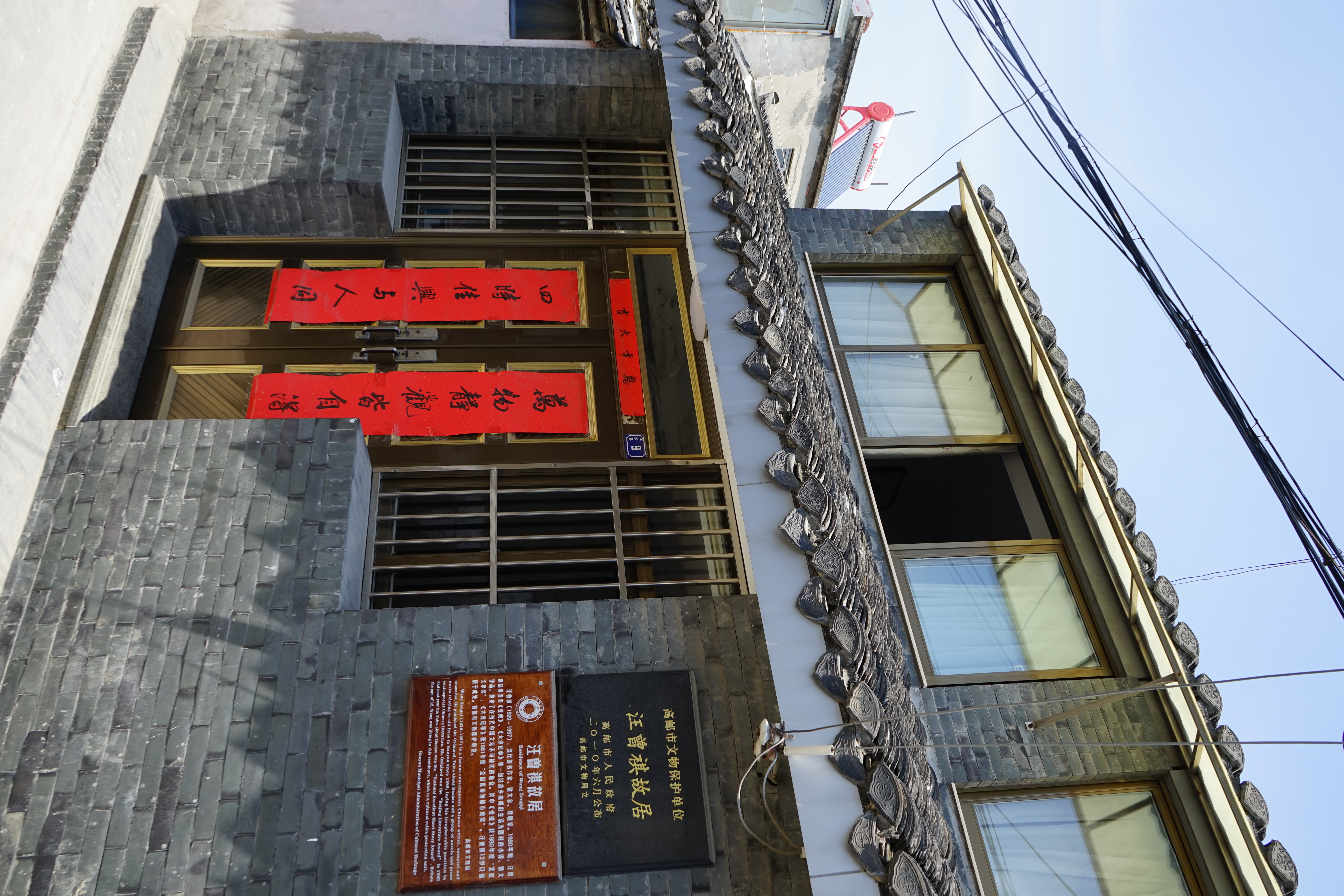Wang Zengqi on:
[Wikipedia]
[Google]
[Amazon]
Wang Zengqi (; 1920 – 1997) was a contemporary Chinese writer. He is famous for his short stories and essays. He is regarded as a successor of
 Wang was born in a landowner family in 1920 in
Wang was born in a landowner family in 1920 in
Beijing School Writers
}
Beijing ( ; ; ), Chinese postal romanization, alternatively romanized as Peking ( ), is the Capital city, capital of the China, People's Republic of China. It is the center of power and development of the country. Beijing is the world's Li ...
.
Biography
 Wang was born in a landowner family in 1920 in
Wang was born in a landowner family in 1920 in Gaoyou
Gaoyou (), is a county-level city under the administration of Yangzhou, Jiangsu province, China, located in the Yangtze River Delta on the north side of the Yangtze River.
History
Recent archaeological finds at the Longqiuzhuang site in Gaoyou has ...
, Jiangsu province
Jiangsu (; ; pinyin: Jiāngsū, alternatively romanized as Kiangsu or Chiangsu) is an eastern coastal province of the People's Republic of China. It is one of the leading provinces in finance, education, technology, and tourism, with its ca ...
. In 1939, he enrolled into then National Southwestern Associated University
When the Second Sino-Japanese War broke out between China and Japan in 1937, Peking University, Tsinghua University and Nankai University merged to form Changsha Temporary University in Changsha and later National Southwestern Associated Universi ...
. He was tutored by Shen Congwen
Shen Congwen (28 December 1902 – 10 May 1988), formerly romanized as Shen Ts'ung-wen, was a Chinese writer who is considered one of the greatest modern Chinese writers, on par with Lu Xun. Regional culture and identity plays a much bigger rol ...
during his university life and then started writing in 1940. He finished the first draft of ''Fuchou'' evenge
He should have graduated in 1943, however, the graduation was postponed to the next year since he failed PE and English. For unknown reason, he failed to obey the university's arrangement to act as an interpreter for the US army, so he didn't get his certificate eventually.
Later he became a teacher at a high school in Kunming
Kunming (; ), also known as Yunnan-Fu, is the capital and largest city of Yunnan province, China. It is the political, economic, communications and cultural centre of the province as well as the seat of the provincial government. The headquar ...
from 1944 to 1946, where he fell love with Shi Songqin, and then in Shanghai
Shanghai (; , , Standard Mandarin pronunciation: ) is one of the four direct-administered municipalities of the People's Republic of China (PRC). The city is located on the southern estuary of the Yangtze River, with the Huangpu River flow ...
until 1948. He moved to Beijing and got a job at a museum later in the year. He followed the Fourth Field Army
The Chinese People's Liberation Army Fourth Field Army () was a military formation of the People's Liberation Army. It was formed during the Chinese Civil War by existing members of Eighth Route Army and New Fourth Army stationed in Manchuria alo ...
to go to the southern as a civil cadre in the next year. He became an editor after being transferred to Beijing in 1950. He adapted the story of Fan Jin in Chapter 3 of '' The Scholars'' for the Peking opera and gained reputation in the 1950s, it also contributed to his being transferred to Beijing Peking Opera Theater in 1961.
He was targeted at the Anti-Rightist Campaign
The Anti-Rightist Campaign () in the People's Republic of China, which lasted from 1957 to roughly 1959, was a political campaign to purge alleged "Rightists" within the Chinese Communist Party (CCP) and the country as a whole. The campaign was l ...
and was banished to Zhangjiakou
Zhangjiakou (; ; ) also known as Kalgan and by several other names, is a prefecture-level city in northwestern Hebei province in Northern China, bordering Beijing to the southeast, Inner Mongolia to the north and west, and Shanxi to the southw ...
until 1962. He suffered the plight again since the Cultural Revolution began. That reversed in 1968, since he was summoned by Jiang Qing
Jiang Qing (19 March 191414 May 1991), also known as Madame Mao, was a Chinese communist revolutionary, actress, and major political figure during the Cultural Revolution (1966–1976). She was the fourth wife of Mao Zedong, the Chairman o ...
to improve a play ''Spark amid the Reed'', namely ''Shajiabang
Shajiabang ( Chinese: ) is a town in Changshu, Suzhou, China; a tourist village located adjacent to Yangcheng Lake in Jiangsu
Jiangsu (; ; pinyin: Jiāngsū, alternatively romanized as Kiangsu or Chiangsu) is an eastern coastal provi ...
''.
He restarted normal writing after the decade. A series of short stories were deemed to be his apogee of writing. The character of his contemporary works is portraying the rural life lyrically. These works stimulated writers of roots-searching literature in the mid- and late 1980s.
Personal life
Wang had a grasp of advanced culinary skills, he was considered to be a gourmet. This enthusiasm is also revealed in his many works, such as ''The'' ''Foods in my home town''.Works
* ''Shou Jie'' nitiation into a Monk's LifeNotes
References
* {{DEFAULTSORT:Wang, Zengi 1920 births 1997 deaths National Southwestern Associated University alumni Chinese male short story writers Republic of China essayists People's Republic of China essayists Writers from Yangzhou International Writing Program alumni 20th-century Chinese short story writers 20th-century Chinese male writers 20th-century essayists Victims of the Anti-Rightist Campaign Republic of China short story writers People's Republic of China novelists Short story writers from Jiangsu Dramatists of Chinese opera